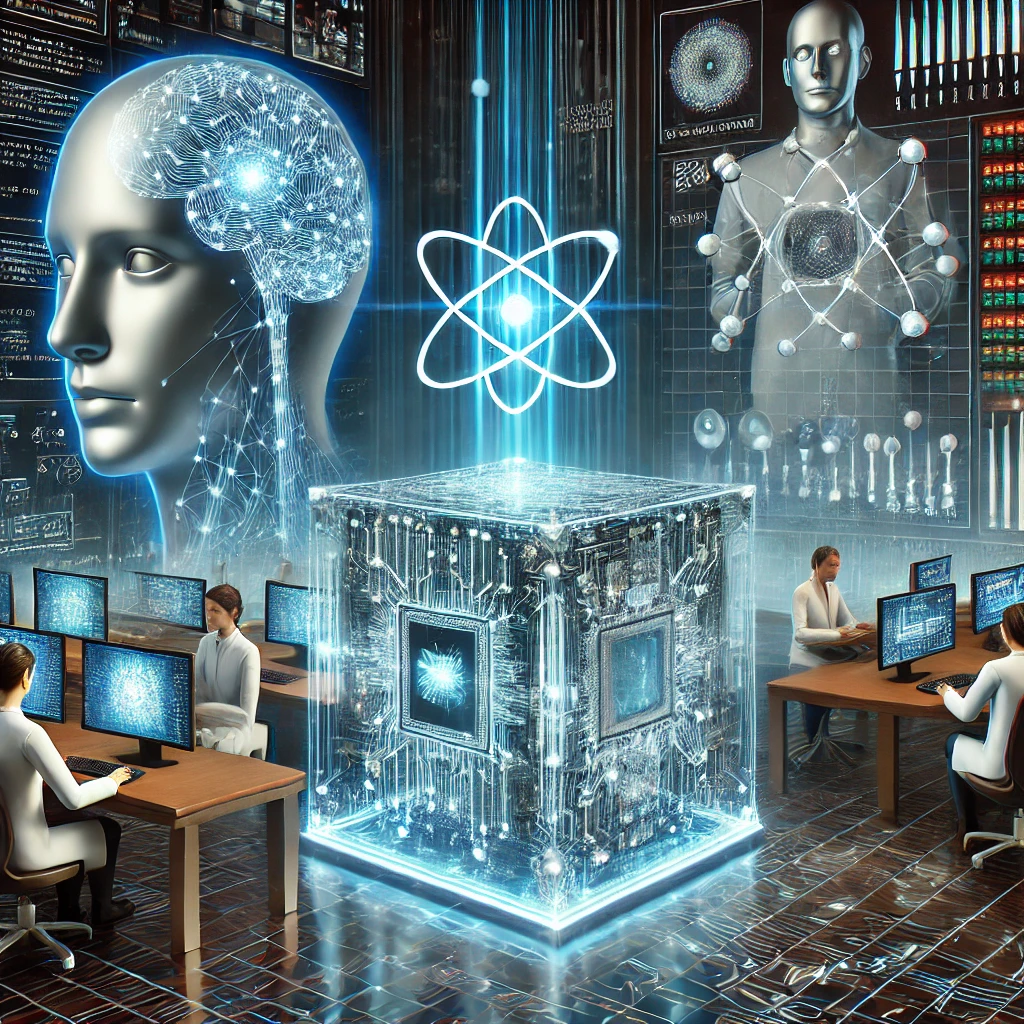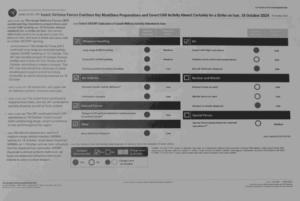AI vs. Quantum Computing: The Future of Technological Advancements
The debate of AI vs. Quantum Computing is becoming increasingly relevant as technological advancements continue to accelerate. Last week, I heard a very interesting interview with Demis Hassabis from DeepMind, one of the two who recently won the Nobel Prize in Chemistry. He said he believes that AI is going to eat up many of the use cases for quantum computing. If he’s right, that’s really bad news for quantum computing startups. Let’s have a look at what this means for the future of technology.
Table of Contents
The Power of Classical Computers
Hassabis expressed a somewhat controversial opinion, suggesting that classical Turing machines—traditional computers—are far more capable than previously thought. This claim challenges the conventional belief that quantum computers are necessary to model complex classical systems. According to Hassabis, it’s possible that classical systems can simulate quantum systems effectively. He has even discussed this idea with leading quantum computing experts like Professor Anton Zeilinger and David Deutsch, the latter famously describing the idea as “crazy but the right sort of crazy.”
The Quantum Advantage
The crux of the matter lies in understanding the so-called “quantum advantage.” Quantum computers are not inherently faster than classical computers; their advantage comes from the efficiency of certain algorithms. Quantum mechanics offers a vast state of possibilities due to properties like entanglement. By leveraging these possibilities, quantum computers can encode and process problems with fewer operations, making them less prone to slowdowns as problem sizes increase.
However, this doesn’t automatically translate to faster computations. Quantum operations are generally much slower compared to classical ones. For instance, while supercomputer clusters now operate in the exaflop range (10^18 operations per second), quantum computers like Google’s Sycamore manage only about 10 million operations per second under optimal conditions. This speed discrepancy highlights the significant initial disadvantage of quantum computers.
| Computing Type | Operations per Second |
|---|---|
| Supercomputer Clusters | 10^18 |
| Quantum Computers | 10 million |
AI’s Role in Quantum Computing
Hassabis suggests that the perceived advantage of quantum computing might be smaller than expected because we might not need the full spectrum of possibilities it offers. This notion is supported by the success of AI systems like AlphaFold and AlphaGo. In both cases, these AI systems managed to solve complex problems by identifying underlying rules and patterns, thus reducing the need to explore every possible outcome exhaustively.
AlphaFold, for instance, cracked protein folding despite the astronomical number of possible configurations for a small molecule. This success was due to AI’s ability to learn physical rules from data, thereby narrowing down the space of possibilities significantly.
Quantum Chemistry and AI
Quantum chemistry is one of the most promising applications of quantum computing. It aims to calculate the properties of molecules or materials without physical production, potentially revolutionizing fields like drug development and material science. Given that chemistry fundamentally involves quantum physics, quantum computers are seen as ideal for this purpose.
However, recent advancements in AI suggest that well-trained neural networks might achieve similar results. A recent paper in Science highlighted how AI is rapidly filling this niche, arguing that many molecules and materials exhibit only limited quantum properties, which can be effectively modeled using AI.
Giuseppe Carleo, a computational physics professor and co-author of the Science paper, stated that quantum computers might not offer significant advantages for most problems in chemistry and materials science. This aligns with Hassabis’ view that certain natural systems, which are prime targets for quantum computing, might be more efficiently tackled by AI.
AI vs. Quantum Computing: Speculative Interpretations and Future Insights
A more speculative interpretation of Hassabis’ remarks is that this principle could apply universally to all natural systems, including quantum computers themselves. If true, it suggests that quantum systems are more constrained by unknown physical rules than previously thought. Such a revelation could lead to profound insights into quantum mechanics.
However, if AI proves to be a superior tool for optimizing quantum computers, we might never fully uncover these deeper quantum mechanics principles. Hassabis’ insights have opened up a fascinating discussion about the future interplay between AI and quantum computing.
FAQs
1. What is the main argument presented by Demis Hassabis regarding AI and quantum computing?
- Hassabis suggests that AI could potentially outperform quantum computing in many applications because classical computers may be more capable than previously thought, and AI can learn underlying rules to reduce the complexity of problems.
2. What is the “quantum advantage”?
- The quantum advantage refers to the ability of quantum computers to perform certain algorithms more efficiently than classical computers, particularly for problems that scale better on quantum systems due to the vast state of possibilities in quantum mechanics.
3. How does AI challenge the need for quantum computers in quantum chemistry?
- AI can model the properties of molecules and materials by learning physical rules from data, reducing the need to explore the full range of quantum possibilities. This makes AI a competitive tool for applications traditionally considered ideal for quantum computers.
4. What are some key differences in performance between classical supercomputers and quantum computers?
- Classical supercomputers can perform operations in the exaflop range (10^18 operations per second), while quantum computers like Google’s Sycamore manage around 10 million operations per second, highlighting the speed disadvantage of quantum computers.
5. Could AI render quantum computers superfluous?
- It’s possible that AI could render quantum computers unnecessary for certain applications by efficiently modeling systems using learned rules, thereby reducing the need for quantum computational capabilities.
In conclusion, the evolving capabilities of AI present a significant challenge to the anticipated dominance of quantum computing. While quantum computers offer unique advantages for specific problems, the rapid advancements in AI suggest that classical computers, augmented by sophisticated algorithms, might be more powerful than previously believed. The future landscape of technological advancements will likely see a dynamic interplay between these two cutting-edge fields.














Post Comment